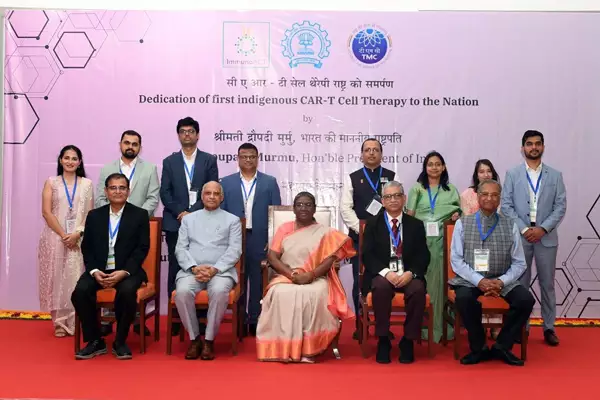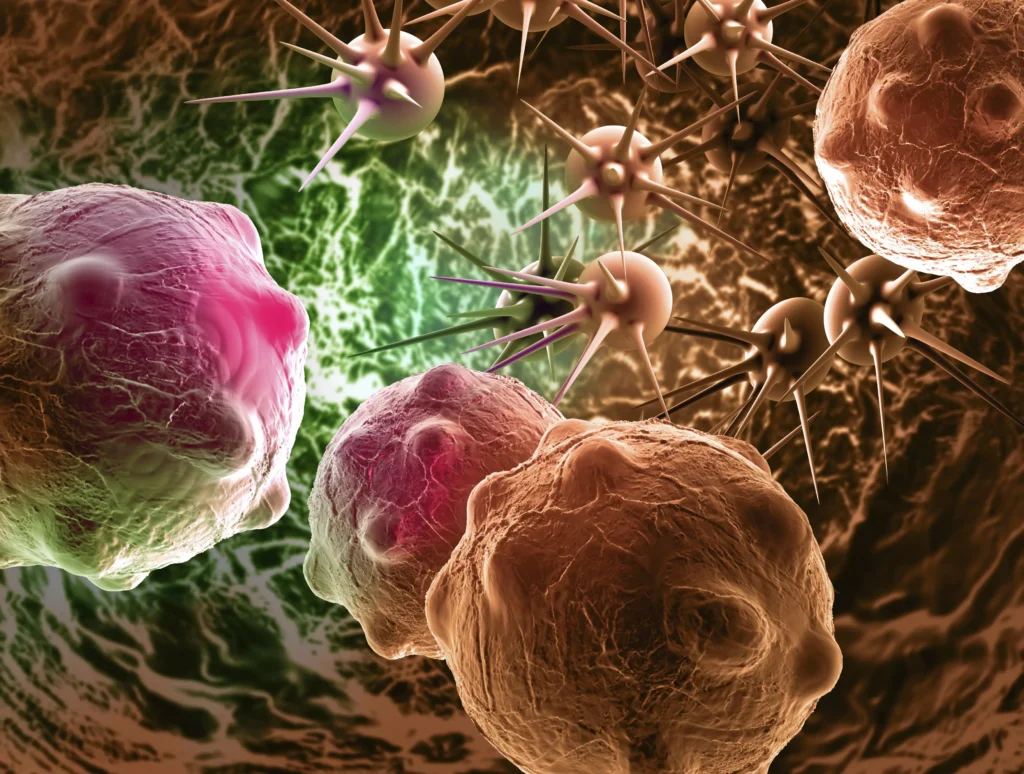NexCAR19, the innovative CAR-T Cell Therapy developed by ImmunoACT, an IIT-Bombay incubated startup, has achieved a significant milestone as the first patient becomes cancer-free following treatment, marking a breakthrough in the fight against blood cancers.
About NexCAR 19:
- NexCAR 19 is an innovative CAR-T Cell Therapy drug developed by ImmunoACT, an IIT- Bombay incubated startup, for blood cancers.
- It involves genetically modifying patient’s T cells to enhance the immune system’s ability to combat cancer cells.
- It is a novel drug, manufactured in India, with potential cost-effectiveness compared to existing alternatives.
- It is designed for treating lymphomas and leukaemia, types of blood cancers.
Mechanism:
- NexCAR19 therapy is designed to target cancer cells that carry the CD19 protein.
- CD19 protein acts like a flag on cancer cells, which allows CAR-T cells to recognise and attach themselves to the cancer cells and start the process of elimination.
What is CAR-T cell therapy?
- Chimeric Antigen Receptor (CAR) T-cell therapy is a revolutionary therapy that modifies immune cells, specifically T-cells, by turning them into potent cancer fighters known as CAR-T cells.
- T-cells are special cells (white blood cells that find and fight illness and infection) whose primary function is cytotoxic, meaning it can kill other cells.
- In CAR-T therapy, T-cells are genetically modified to enhance their cancer-fighting capabilities.
- T cells are extracted from the patient’s blood, and in a laboratory setting, a specific receptor known as a chimeric antigen receptor (CAR) is genetically added to these T cells.
- This receptor is designed to bind to a particular protein found on the patient’s cancer cells.
- Once modified, these cells are reintroduced into the patient’s body, where they target and attack cancer cells, particularly in blood cancers such as leukemia and lymphomas.
How is CAR-T cell therapy different from chemotherapy and immunotherapy?
- Unlike chemotherapy and immunotherapy, which may offer temporary relief, cell-and-gene therapy is engineered with the goal of providing a potential cure and long-term benefits for cancer patients.
- Cell-and-gene therapy stands out by offering a one-time transformative treatment, eliminating the need for multiple sessions typically associated with chemotherapy.
Significance of CAR-T cell therapy:
- The therapy is for people with B-cell lymphomas who didn’t respond to standard treatments like chemotherapy, leading to relapse or recurrence of the cancer.
- It causes minimal damage to neurons and the central nervous system, a condition known as neurotoxicity.
- Neurotoxicity can sometimes occur when CAR-T cells recognise the CD19 protein and enter the brain, potentially leading to life-threatening situations.
- The therapy also results in minimal Cytokine Release Syndrome (CRS), which is characterised by inflammation and hyperinflammation in the body due to the death of a significant number of tumour cells, as CAR-T cells are designed to target and eliminate cancer cells.
- CAR T-cells are often referred to as “living drugs” because they persist in the body for the long term, providing potential benefits for many years.
Ref: Source
| UPSC IAS Preparation Resources | |
| Current Affairs Analysis | Topperspedia |
| GS Shots | Simply Explained |
| Daily Flash Cards | Daily Quiz |





